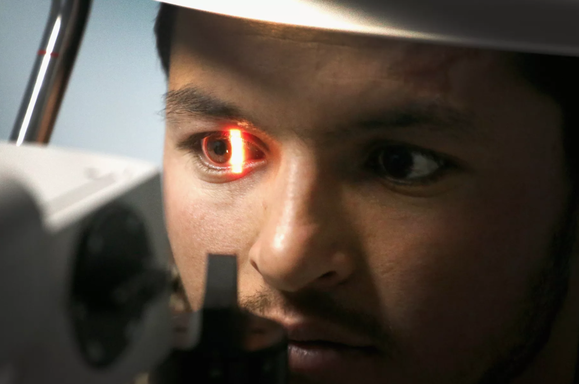|
Google and its health subsidiary Verily are now able to use machine learning to detect an individual's risk of heart disease with about the same accuracy as the current top methods. The software uses scans of the back of a patient's eye to deduce and analyze data including blood pressure and age. The computer algorithm (which accurately predicted cardiovascular risk 70 % of the time) could bring large efficiency gains as it is a much quicker and simpler way for doctors to assess cardiovascular risk. The current top performing method which makes correct predictions 72 % of the time requires taking a blood test.
Many doctors and professors have voiced their perception of Google's approach as credible as it builds from large bodies of established research of looking at the retina to predict cardiovascular risk. Although the algorithm will need to be tested further before it could be used clinically, artificial intelligence's potential to speed up current methods of medical analysis is a benefit many are looking forward to. The project steps outside of the common application of most medical algorithms, which seek to replicate current diagnostic tools, as it conducts new analysis on previously captured data. The machine learning program was trained to look for patterns using a medical dataset of 300,000 patients which included general medical information as well as eye scans. Click here to read the full article.
0 Comments
Leave a Reply. |
A2D Digital FeedFollow the leading stories about digital transformation. |


